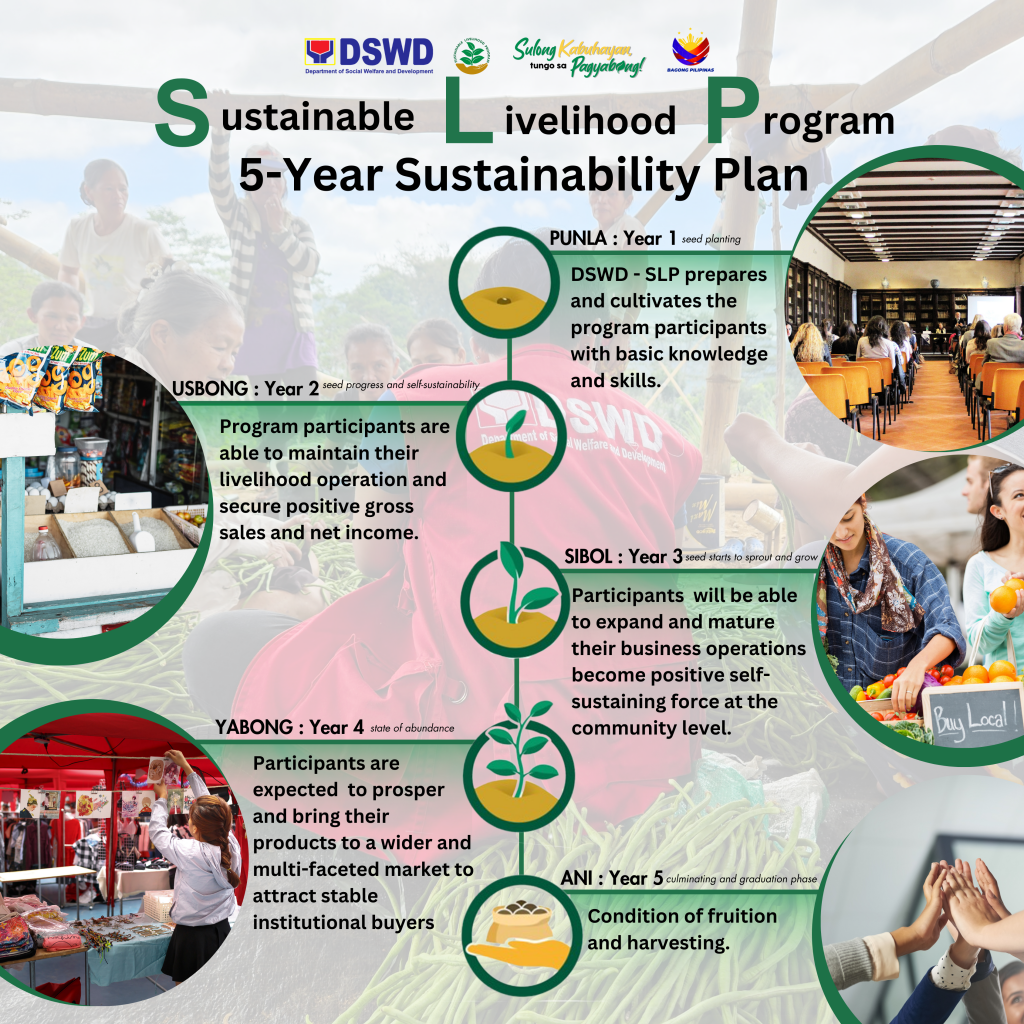
The Sustainable Livelihood Program (SLP) remains the DSWD’s initiative to help improve their socio-economic condition through accessing and acquiring necessary assets to engage in and maintain thriving livelihoods. In addition, a 5-year sustainability plan is now executed, designed to systematically evaluate and address the needs of program participants concerning their businesses. This proactive strategy aims to empower individuals, promote sustainable development, and encourage positive transformation within the community.
The initial phase, referred to as “Punla” or “seed planting”, signifies the foundational phase of the DSWD-SLP. During this period, the program meticulously equips participants with essential knowledge and skills necessary for initiating their micro-enterprises or securing employment opportunities.
The second phase, termed “Usbong”, centers on the “seed progress” and self-sustainability, wherein the program participants are able to maintain their livelihood operational and secure positive gross sales and net income
The third phase, referred to as “Sibol”, as the “seed starts to sprout and grow”, the goal of the SLP is to bring the program beneficiaries to new heights. They will be able to expand and mature their business operations and processes to become a positive self-sustaining force at the community level.
In the fourth phase, designed as “Yabong”, participants are expected to reach a state of abundance. The program participants are expected to prosper and bring their products to a wider and multi-faceted market to attract stable institutional buyers.
The fifth phase, referred to as “Ani,” performs as the culminating and graduation phase of the program, phase 5 is the condition of fruition and harvesting wherein the SLP will conduct the actual graduation ceremonies of the program participants.
The 5-year sustainability plan is designed to empower program participants by providing tailored support and resources that address their evolving needs. Through continuous monitoring, community engagement, and effective evaluation, the plan aims to foster sustainable growth and ensure that participants can achieve lasting success, ultimately contributing to the broader economic resilience of the community.


